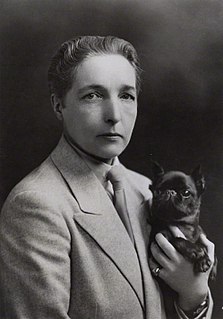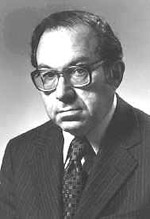Цитата Томаса Джефферсона
Когда добродетель изгнана, честолюбие вторгается в умы тех, кто склонен ее принять, и жадность овладевает всем обществом. Объекты их желаний меняются; то, что они любили прежде, стало безразличным; они были свободны, пока подчинялись законам, но теперь они хотели бы иметь свободу действовать против закона.
Связанные цитаты
Таким образом, эти три поправки к Конституции [13-я, 14-я, 15-я] были ратифицированы, когда десять южных штатов находились на военном положении и «вообще не имели закона». Законы о силе, четыре закона о реконструкции и Закон о гражданских правах были приняты Конгрессом, в то время как южным штатам не разрешалось проводить свободные выборы, а все избиратели находились под пристальным наблюдением федеральных войск. Таких издевательств над избирательными процедурами не было даже в Советской России.
По мере развития нацистского режима с годами изменилась вся структура принятия решений. Сначала были законы. Потом были декреты, реализующие законы. Затем был издан закон, гласивший: «Никаких законов быть не должно». Потом были приказы и директивы, которые записывались, но все же публиковались в министерских ведомостях. Тогда было правительство объявлением; заказы появились в газетах. Затем были тихие приказы, приказы, которые не были опубликованы, которые были внутри бюрократии, которые были устными. И, наконец, вообще не было заказов. Все знали, что он должен был сделать.
Позвольте мне быть свободным человеком, свободным путешествовать, свободным останавливаться, свободным работать, свободным торговать, где захочу, свободным выбирать себе учителей, свободным следовать религии моих отцов, свободным говорить, думать и действовать ради себя — и я буду подчиняться всякому закону или покорюсь наказанию.
Если белый человек хочет жить в мире с индейцем, он может жить в мире. Относитесь ко всем мужчинам одинаково. Дайте им всем тот же закон. Дайте им всем равные шансы жить и расти. Все люди были созданы одним и тем же Великим Духовным Главой. Все они братья. Земля – мать всех людей, и все люди должны иметь на ней равные права. Позвольте мне быть свободным человеком, свободным путешествовать, свободным останавливаться, свободным работать, свободным торговать, где захочу, свободным выбирать себе учителей, свободным следовать религии моих отцов, свободным думать, говорить и действовать во имя себя, и я буду подчиняться каждому закону или покорюсь наказанию.
[До принятия Закона о гражданских правах 1964 года] многие правительства южных штатов заставляли людей разделяться по расовому признаку. Защитники гражданских прав боролись за отмену этих законов штата, но потерпели неудачу. Поэтому они обратились к федеральному правительству, которое отреагировало принятием Закона о гражданских правах 1964 года. Но этот федеральный закон не просто отменил законы штатов, обязывающие к сегрегации. Он также запрещал добровольную сегрегацию. То, что было обязательным, стало запретным. Ни до, ни после принятия Закона о гражданских правах люди не были свободны в принятии собственных решений о том, с кем они связаны.
Мне было 32 года, и я передумал. И самая главная причина, по которой я передумал, это мои семь лет работы федеральным прокурором. Что я понял за эти семь лет, так это то, что мы тратим слишком много времени на разговоры о законах об оружии против законопослушных граждан и слишком мало времени на разговоры о строгом соблюдении законов об оружии против преступников.
Но мы либо верим в демократию, либо нет. Если мы это делаем, то мы должны сказать категорически, без оговорок, что не должно быть допущено никакого ограничения каких-либо демократических процессов, кроме как обычным законом страны. Если вы верите в демократию, вы должны верить в нее безоговорочно. Если вы считаете, что люди должны быть свободны, тогда они должны иметь право на свободу ассоциации, свободу слова, свободу публикации. Тогда ни один закон не должен допускать, чтобы эти демократические процессы были сведены на нет.
Могут ли свободные люди сдерживать преступность, не жертвуя фундаментальными свободами и наследием сострадания?... Давайте покажем, что мы можем объединить эти противоположные элементы свободы и сдержанности в одно непротиворечивое целое. Давайте подадим миру пример законопослушной Америки, гордящейся своей свободой, а также своим уважением к закону.
Если я хотел быть свободным, по-настоящему свободным, я должен был сделать выбор. На компасе было много точек; Я должен был найти те немногие, которые были предназначены для меня. Не любой пункт назначения, выбранный наугад; Я должен был направиться к тем, кто звал меня со страстью, ибо именно они придавали смысл моей жизни. Мне пришлось игнорировать предупреждения тех, кто объяснял мне, почему я не могу делать то, что хочу.
«Либеральный рай» — это место, где всем гарантирована работа, бесплатное комплексное медицинское обслуживание, бесплатное образование, бесплатное питание, бесплатное жилье, бесплатная одежда, бесплатные коммунальные услуги и только у сотрудников правоохранительных органов есть оружие. И, хотите верьте, хотите нет, такая либеральная утопия действительно существует. ... Это называется тюрьма.

































